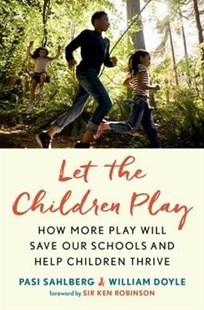PASI SAHLBERG
A Finnish educator, author and scholar Pasi Sahlberg has worked as a schoolteacher, teacher educator, researcher and policy advisor in Finland and has studied education systems and policies around the world. In his long career in education he has served the World Bank in Washington, DC, the European Commission in Torino, Italy, and the OECD as an education expert. He is an advisor to several governments about education and chairs the Open Society Foundation’s global education advisory board. His recent books include “Finnish Lessons 2.0: What can the world learn from educational change in Finland” (2015) and “FinnishED Leadership: Four Big, Inexpensive Ideas to Transform Education” (2018). His new book with William Doyle is “Let the Children Play: Why More Play Will Save Our Schools and Help Children Thrive” (2019).
His professional honours and awards include the 2012 Education Award in Finland, the 2013 Grawemeyer Award in the United States, the 2014 Robert Owen Award in Scotland, 2016 Lego Award in Denmark, and 2017 Rockefeller Foundation Bellagio Residency. He is a former Director General of CIMO (Centre for International Mobility and Cooperation) at the Finland’s Ministry of Education and Culture in Helsinki and visiting Professor of Practice at Harvard University’s Graduate School of Education. Pasi is Professor of Education Policy at the Gonski Institute for Education, University of New South Wales in Sydney. More on his website: pasisahlberg.com and Twitter: @pasi_sahlberg.
Leading and learning through uncertain time
There is only a little doubt that the COVID-19 pandemic is a big disruption in our lives. It questions many traditional rules and structures that have organised the work of schools in the past. But not everyone agrees how the pandemic will eventually change schools and what it means for leadership. In this keynote Pasi Sahlberg asks whether the pandemic helps us fix some of the pre-existing inequalities that we were unable, and often unwilling, to improve. Pasi argues that as we think about how educational leadership should be refocused in the future, it is important to continue efforts to make school education more inclusive, fairer and equitable for all. He takes some early examples from two distinct education systems, Australia and Finland, to highlight how disrupted schooling caused have had different impact on school leadership and teachers. As a conclusion Pasi suggests some concrete issue to be considered: address pre-existing inequalities early on; build trust in teachers and principals more in leading schools forward in the post-pandemic world; and invest in your school and children to become more self-directed in leading and learning for the uncertain future.

Let the Children Play
Why More Play Will Save Our Schools and Help Children Thrive
Play is how children explore, discover, fail, succeed, socialize, and flourish. It is a fundamental element of the human condition. It's the key to giving schoolchildren skills they need to succeed--skills like creativity, innovation, teamwork, focus, resilience, expressiveness, empathy, concentration, and executive function.